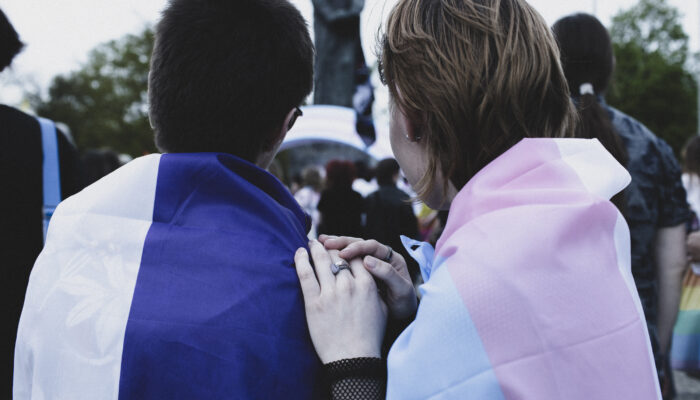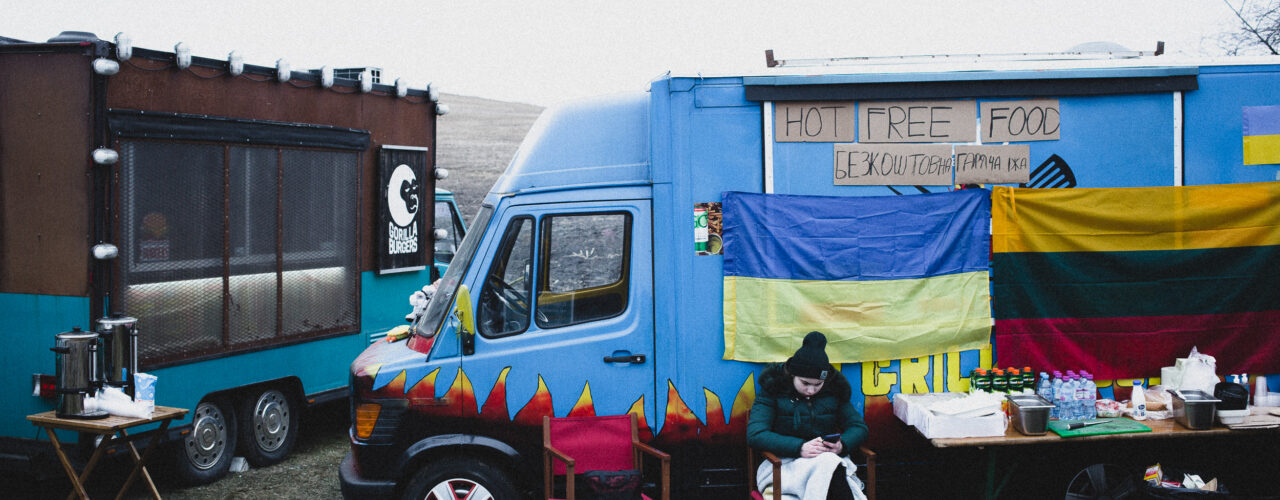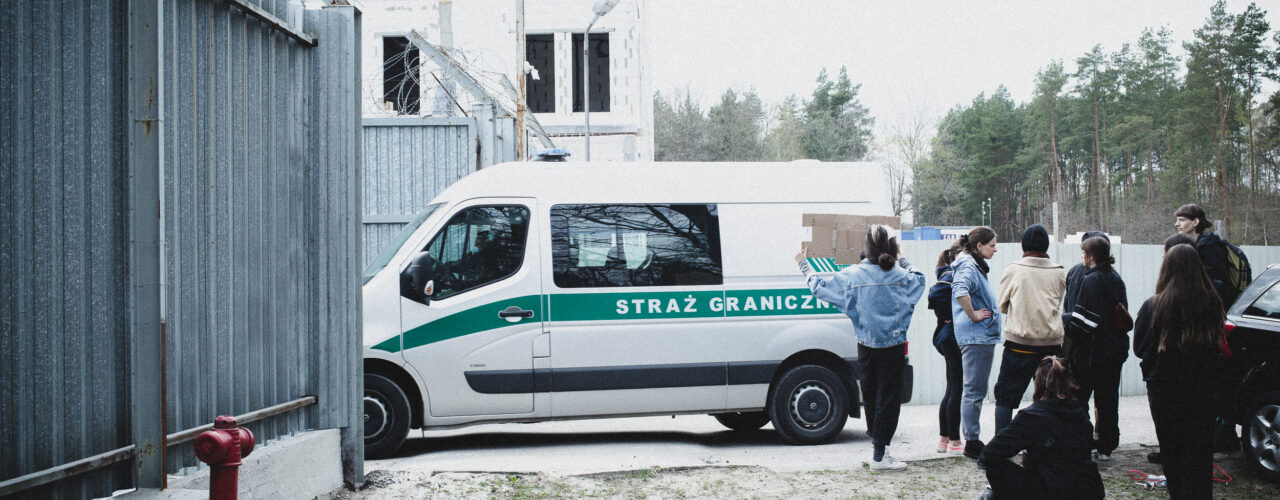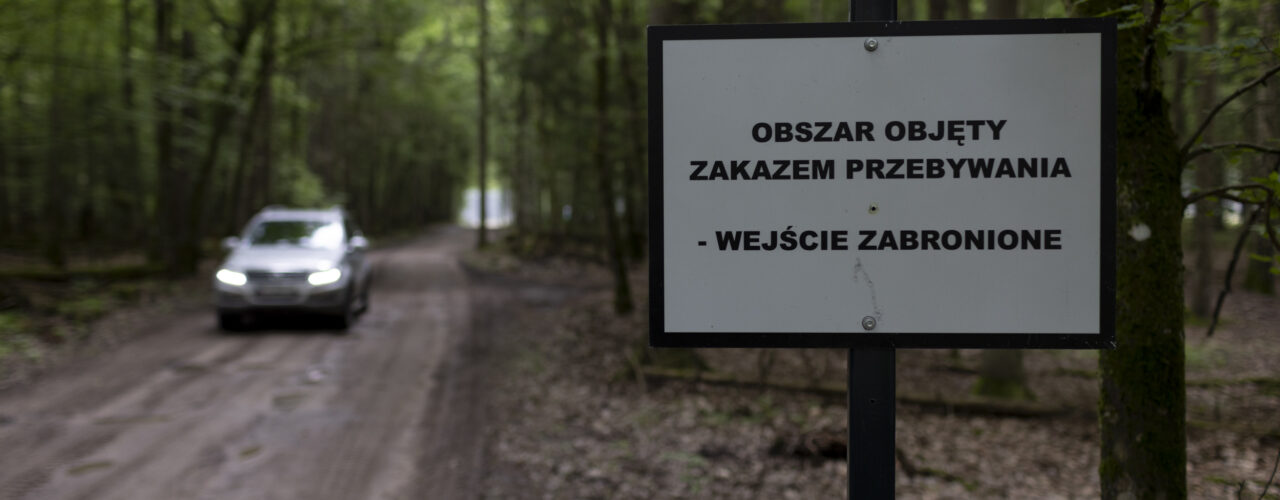The crisis is massive, funding has dropped significantly, and the needs are only continuing to grow.

Can you share something about yourself and the work that you are involved in?
I am Sarian, and I previously worked with Save the Children, UNHCR, and Amnesty—mostly on topics related to LGBTQIA+ issues. I transitioned from this work to the Migration Consortium, a coalition of Polish and Ukrainian organizations in Poland, due to the current situation in the country and the needs I observed around me. Our focus is primarily on humanitarian response, especially since 2022 full-scale war to Ukraine.
At the moment, there are two ongoing humanitarian crises in Poland: one at the Polish–Belarusian border, and the other, as you know, at the Polish–Ukrainian border. I coordinate research and support advocacy efforts. In addition, I served as an LGBTQIA+ humanitarian advisor for Save the Children and co-founded a new informal coalition called Queer Without Borders. I also used to work at the Belarusian border.
Can you explain a bit more about the situation at the border?
At the Polish–Belarusian border, we began seeing the first pushbacks in the summer of 2021. Since then, 22,000 pushbacks have been recorded. Migrants, mostly from Middle East and African countries, come to the forests of Belarus, where they attempt to cross the border into Poland. Some succeed, but others are intercepted in the forest and pushed back to Belarus, where they are imprisoned and often tortured. They were promised safety from persecution and war by their intermediary agents, with the support of Belarusian country, and tricked into this life and death journey.
We provide humanitarian assistance in the forests and swamps, where many people try to hide. The problem is that there are not enough humanitarian organisations present. When it comes to INGOs they do not enter this area: only MSF is there to provide medical assistance. With this group, we provide humanitarian aid—soup, medical, and legal assistance. But at the same time, we are easily criminalised, which makes the work very complicated.
The criminalisation of aid is getting worse, especially as many international organisations are leaving the country.
With the LGBTQIA+ organisation, we try to support legal cases and provide psychological assistance, as these individuals receive no help from the Polish government. The lack of shelter for vulnerable people is also a major challenge—especially after recent aid cuts, which led to a sharp decline in the availability of shelters and organisations offering safe spaces.
As for the Ukrainian response, I don’t even know where to begin. The crisis is massive, funding has dropped significantly, and the needs are only continuing to grow.

How are you able to support people on the run by the time they reach you?
We try to cover different needs. First, we need to understand what the specific needs of a group are. We identify vulnerabilities within the group and assess whether we can provide the necessary support. But as I mentioned, this work is not without risks, and there are legal limits to what we can do. For example, we are not allowed to offer people a ride to the hospital. This is often incredibly frustrating.
You’re leaving people in a cold forest—wet, starving, exhausted. We know the night will be a nightmare for them, but we do what we can. We try to give them warm clothes, blankets, and other essentials. If they need medical assistance beyond what we can provide, we have to call an ambulance or hospital.

But sometimes, even after being treated, they are taken straight from the hospital and pushed back to Belarus.
How are international organisations responding to it?
It’s difficult to say, but there is a pattern to it. There is clearly racialisation—it’s very obvious. But at the same time, there are real efforts being made to find donors, though these are not always successful. So, at the intermediary level, there is definitely a willingness to help. The challenge lies more on the donor side, where it’s hard to convince people that this is a humanitarian crisis, especially because the numbers are lower than in other areas and countries.
There’s also a common belief that the state should take responsibility—but that isn’t really happening. We should focus more on how to engage the state effectively, but there’s a sense of stuckness in all of us. As humanitarian organisations, we’re burning ourselves out, often working without funding. International organisations are pulling out because they can no longer justify their presence, while the state still doesn’t grasp the full extent of what it needs to take on.
How do you cope with the constant risk of being criminalised in your work?
I have worked in many dangerous contexts. To name one: I had to escape from Uganda due to the death penalty for homosexuality that was introduced. Not long ago, I made the decision to stop going to the field myself. It had become too much, and since I had a hold on a large amount of sensitive data, I started feeling increasingly paranoid.
At the same time, you do begin to adapt to this constant sense of risk—it becomes part of your reality. But for some of my colleagues, it became too overwhelming. A lot of them were very young, and this kind of work burned them out quickly. Those of us who have been in the field for years are often extremely passionate and unstoppable.
So in a way, I would say I’m sometimes more worried about my friends than I am about myself.

You collaborate with many organisations, how does that collaboration function in practice?
We have many collaborations with other organisations, which helps a lot during emergencies. We try to step in and cover gaps wherever we see a need. But because humanitarian aid is so scattered, there’s a joke we often make: nobody really knows who’s in and who’s out.
What do you do with the findings from your research?
To be honest, research is just an excuse—it’s the starting point. We always follow up with recommendations. Advocacy is incredibly important, and we never want to leave that part out. Before conducting research, we map out what we want to achieve with the results.
We’re also often approached by state actors for advice. Because we know so many different actors, we can easily divide the work that needs to be done.
You are also part of the Humanitarian Observatories. How does that network support your work?
We are extremely happy with it. In other European countries, it seems there is more space and more organisations for knowledge sharing. Here, I feel like we are the first. The voices of Poland, Ukraine, and Lithuania need to be heard. I truly believe this kind of platform really helps us. I feel we’ve really missed this generalist approach and lacked access to information. Through platforms like this, we not only get the chance to carry out research but also to use the outcomes effectively.
In your view, what does effective localisation look like?
I see some examples of organisations that are doing very well. But, of course, there are also lessons to be learned. What I can share is that there cannot be real localisation without genuine financial and administrative cooperation. There needs to be more action, not just talk.
Even though there are some success stories of localisation in Poland, if you look at the statistics, only 3 to 4% of donations actually go to local organisations. To be honest, the amount of paperwork required by many organisations often becomes more of a burden than a relief for local groups. In some cases, people end up working behind desks, trying to comply with all the required documentation, instead of doing the much-needed hands-on work.
I think what happened some time ago was a kind of humanitarian disenchantment. Local organisations were initially very excited about the support from (I)NGOs and hoped for the best. But they were disappointed by how things actually turned out. The question now is: are we true partners, or merely implementing partners doing everything international organisations ask of us?
What local organisations really want is to be treated as equal partners.
Looking ahead, how would you like the humanitarian community to be more involved in the areas where you work?
What I think we really need may not be more international support from (I)NGOs, but greater engagement from the Polish government. And one area that especially needs improvement is exit strategies—because they are mostly lacking.
Pictures: Agata Kubis
More information about the Humanitarian Observatories
Author: Marianne van Elst-Sijtsma
Date: 1 December 2025
